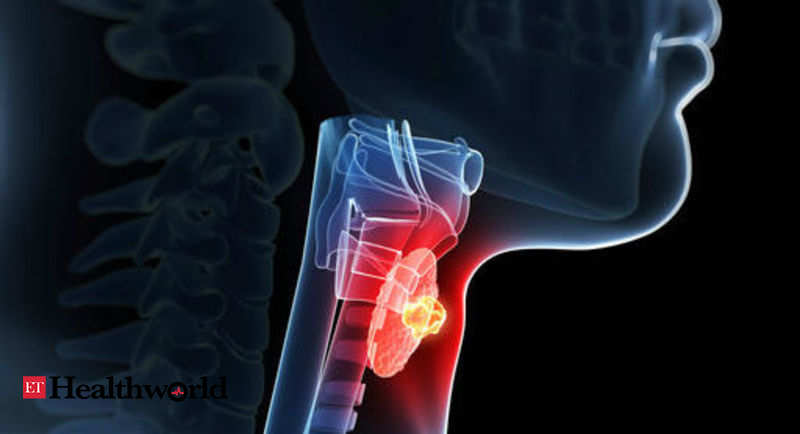Trans-oral Robotic Surgery: FMRI introduced an advanced throat cancer treatment

Patients suffering from early stages of oropharyngeal carcinoma (cancer of the neck, mouth or throat) were treated with a new robotic surgery technique.
FMRI (Fortis Memorial Research Institute), Gurugram piloted special research on oropharyngeal cancer patients to test the effectiveness of a new treatment.
TORS (Transoral Robotic Surgery) was performed on 57 patients, under the supervision of Dr Surender Dabas the director of Surgical Oncology (head, neck and thorax) at FMRI Hospital. This surgical technique is effective in treating patients with HPV negative cancers, that develops because of tobacco consumption.
According to a study, published in an 'Oral Oncology' journal, conducted from March 2013 to October 2015 on 57 patients with early stage (I and II) oropharyngeal carcinoma, who underwent TORS robotic procedure.
These 57 patients, included 48 males and nine females, between the average age of 59.4 years. The most common infected site included the base of tongue (BOT) in 31 patients. 24 patients had stage I and 33 had Stage II cancer. Forty-three (89.6 %) patients became disease free with 93.8% of overall survival after the follow-up of around 29 months.
In TORS, the robotic arms are strategically placed inside the patient’s mouth. TORS allows the surgeons to gain access, via the mouth, other organs and areas where his/her hands can’t reach.
TORS is still a new approach for removing cancers from areas like throat that are relatively difficult to access, including the bottom of tonsils and base of the tongue. When these two areas, including different parts of the oropharynx (posterior oropharynx wall, soft palate), are the main tumour sites on which TORS is used.
During a conference, one of the cancer survivor, Amalkanti Bhowmik (age 76 years) explained how Robotic surgery helped speeding up the recovery.
"I developed difficulty in swallowing food and soon even water in March this year. When my family took me to a doctor, an endoscopy revealed a lesion inside my throat. Subsequently, samples were sent for a biopsy which confirmed stage I cancer of the Larynx (voice box). We went to several doctors thereafter to, and most gave us the option of radiation followed by surgery, due to my age. However, we knew that the outcome of radiation would have led to further deterioration in my health. It was then that a nephew practicing medicine in the UK recommended robotic surgery for my cancer. I have been disease-free since my surgery and have been recovering well for my age," he said
Dr Dabas shared that, "In comparison to HPV negative cancers HPV positive cancers are more responsive to chemotherapy and radiation treatment. In India majority (nearly 70 percent) of all oropharyngeal cancers is HPV negative. This is the reason that TORS is a viable treatment option for HPV negative cancers. In order to avoid the side effects of undergoing a traditional open surgery, if cancer has been caught at an early stage, TORS is adopted. Posing significant benefits to the patients, it prevents functional impairments to speech and swallowing. It is a fast surgery and precise, intricate and intensive in its execution. The amount of blood loss and the recovery time required post the operation is remarkably minimal. As this method can be implemented without prior chemotherapy, it allows the patient to be free of any toxicity associated with the same."
Full Article link:





